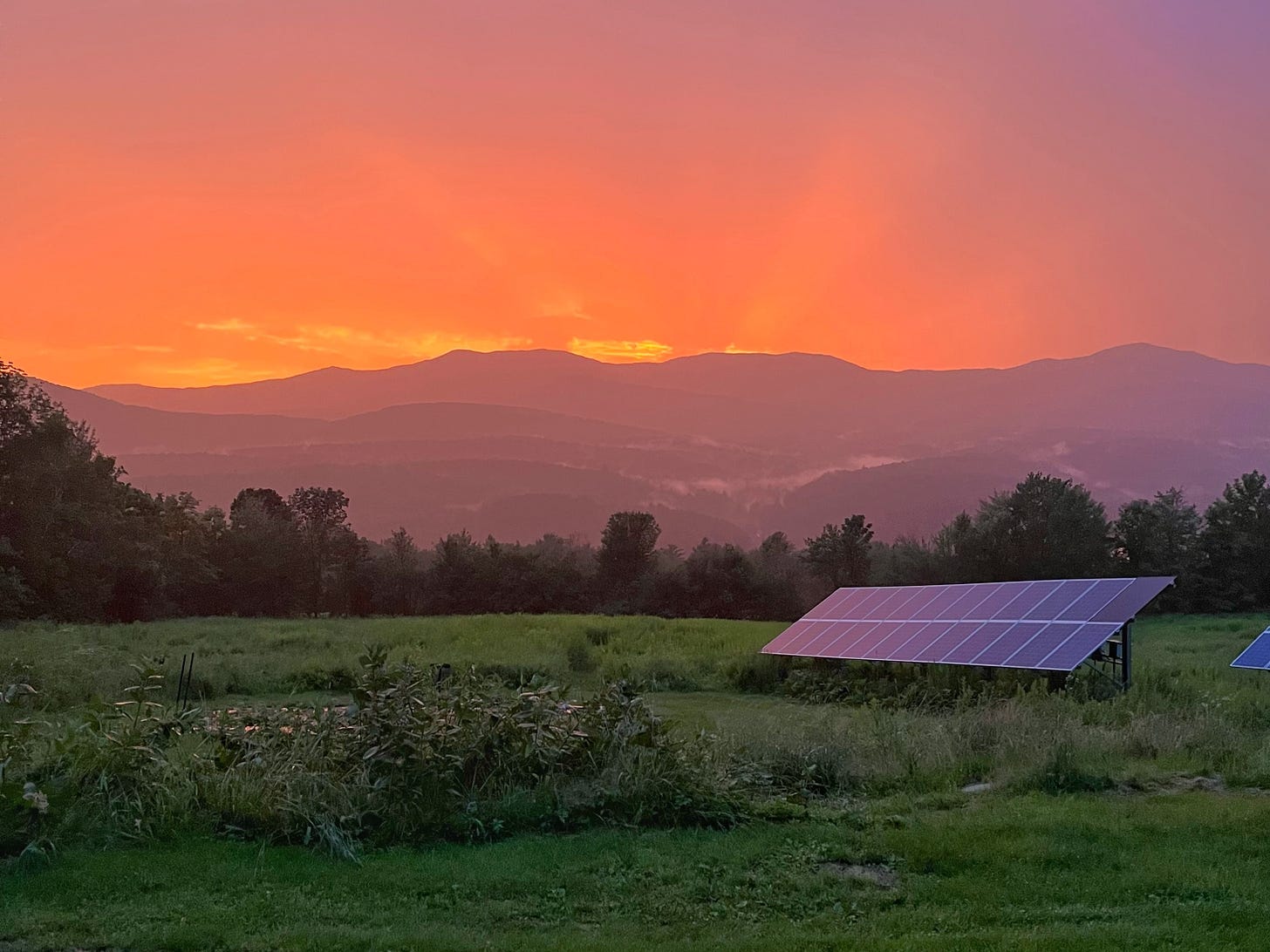What I’ve Learned
Just as bravery
is only brave
because of fear
Resiliency doesn’t exist
without the breakdown
the stretch
the pulling apart of what was
for what may be
to flood into
the cracks,
becoming rivers that one day
will nourish a new landscape
I’ve been thinking about resilience.
How that word – resilience – is at risk of becoming like sustainable and natural. Bandied about so much that we don’t quite know what it means anymore.
Just look at this chart of its use over time:
The Oxford Languages online dictionary defines resilience in two ways:
1. the capacity to withstand or to recover quickly from difficulties; toughness.
2. the ability of a substance or object to spring back into shape; elasticity.
So when we say resilience I’m interested in knowing if we mean the ability to recover from difficulties, or the ability to return to our prior shape or state of being. Because they are not one in the same.
I’m thinking now of farming, of the Vermont floods of 2023, the immense damage to soil and crops and roads and infrastructure and all the systems that keep us fed.
On my hillside farm, our concern was our road washing away, erosion in the vegetable fields, and flooding in the greenhouses. All of it happened, but we escaped the worst version of each scenario. We made it through with our fields intact, but many farms around the state suffered catastrophic losses. What does resilience mean for them? We can’t expect every farm to return to their previous shape, or even their previous location – not after fields are carved out by rivers and soil is carried away downstream.
I’m thinking, too, of my own capacity and energy before the floods, before the rain, and farther back still, before Alzheimer’s entered our family, before the many weights of caregiving and parenting and business and farming converged to break something apart within me.
I don’t think I believe in resilience as springing back into shape. As easy as it is to romanticize the before-times, I don’t want to go back to that shape. I don’t want to go back to the times when I didn’t know how to rest or find patience or ask for help or be gentle with myself. I don’t want to go back to the times when I thought resilience was an individual task.
There is no resilience without networks and community.
The reasons our fields didn’t wash away in July’s torrential rain was because of the capacity of soil to hold water, and when it couldn’t hold more, because of the roots that held, and the laneways of sod that frame each plot, and the decade of soil-building we’ve engaged in with compost and cover crops and crop rotation. The reason we financially made it through a year with so much crop loss was because of our CSA Members’ willingness to support us and still sign up for the fall share, because of the NOFA-VT Farmer Emergency Fund, the decade of relationships we’ve engaged in that showed up to catch us.
And yet.
Needing to be resilient for too long is exhausting.
Toughness is exhausting.
Sometimes the most resilient thing to do is to be gentle.
What if we edited the definition of resilience:
1. the capacity to withstand or to recover quickly from difficulties;
toughness.2. a network capacity to absorb and navigate difficulties through shared resources; community care
3. the flexibility to shift into a stronger state; elasticity
And add beauty in there, add joy, add the act of sowing seeds – these things that bring us through the challenge.
Two days after the floods, a glorious sunset shone over the Worcester Range:
It strikes me now how beauty is a form of resilience. Awe is one way to find refuge and the energy to keep going.
I don’t know what the outcome of our collective response to the floods will be. We are all trying to figure out how to live in a world of climate instability. Maybe we speak the words we need before we know how to live out their meaning in the world. Maybe we speak dreams into being: each word a seed with everything it needs to grow already inside it.
Resilience
Resilience
Resilience
Maybe we speak the words we need before we know how to live out their meaning in the world.
One word, one seed at a time, sowing a future that will nourish, so we may no longer need resilience on our tongues. So it may ease back down the chart of use, composting into soil until another day when we’ll call on it again.






Thank you, Kate. I too have found the term "resilience" to have lost any useful meaning and become a filler of sorts into which we dump the stuff we don't know how to deal with or don't want to. I love your notion of words and seeds. People, and the planet, ARE resilient, at least up to a point and only if we respect we can't go back to how it was.
I love your revised definition of resilience, including the joy and beauty and seed sowing. Community care is definitely part of it.